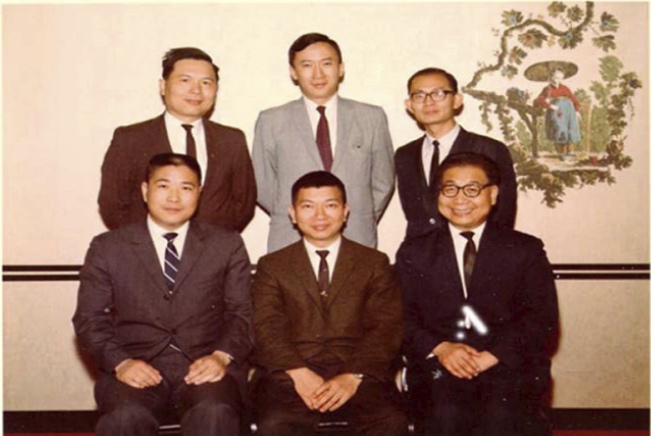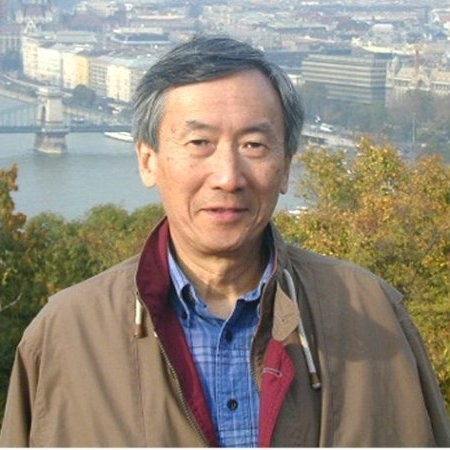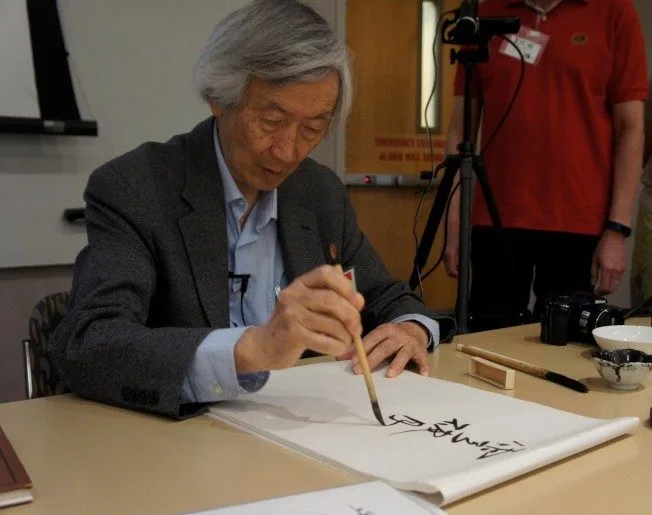
Weiming Lu was a founding member of CAAM, along with Dick Chen, David Lo, Fred Hsiao, Jie Chang Soong, and Shao Hsiung Huang.
Weiming Lu’s life and career reflect a remarkable journey of resilience, creativity, and profound influence on urban design and cultural preservation, both in the United States and internationally.
Born in Shanghai in 1930, Lu’s early years were shaped by the tumultuous political climate of China. The Japanese invasion, civil wars, and political unrest marked his childhood, during which he often found himself separated from his father, a prominent architect and government official. These experiences of hardship, and witnessing his mother’s quiet determination to keep the family together, instilled in him the values of perseverance and resilience—traits that would guide him throughout his life.
In 1949, with the Communist takeover of Mainland China imminent, Lu’s family moved to Taiwan. There, he pursued civil engineering at Cheng Kung University before moving to the United States to further his education. He earned a degree in civil engineering from the University of Minnesota, where he met his future wife, Caroline Chang. Following in his father’s footsteps, Lu then pursued a master’s degree in city and regional planning at the University of North Carolina.
Lu’s professional journey took him across the globe before he eventually settled in Minneapolis. His work in the city marked the beginning of a distinguished career in urban planning, historic preservation, and advocacy for the arts. In Minneapolis, he played a key role in designing the Nicollet Mall and the skyway system, projects that significantly enhanced the city’s livability and economic vitality. He was involved to build up sister relationship between Changsha city, capital city of Hunan Province in China and the St.Paul city, Capital city of Minnesota state; Establishment of Changsha-St.Paul Friendship Garden (Liuming Yuan) in Phalen Park, St.Paul.

However, it was in Saint Paul’s Lowertown district where Lu made his most significant impact. In 1979, when Lu took the helm of the Lowertown Redevelopment Corporation, the neighborhood was in a state of decline, with many buildings abandoned and the area suffering from economic downturns. Under his leadership, Lu spearheaded the revitalization of Lowertown by attracting artists and securing substantial funding for redevelopment. His efforts transformed the district into a vibrant community that balanced historic preservation with modern urban needs. The district’s rejuvenation under Lu’s guidance is now celebrated as a model of smart urban design and community development .

Despite his success in the U.S., Lu never lost touch with his roots. He frequently visited Taiwan and China, where he advised on urban planning and design. He was invited to be a key advisor of the consulting committee of the gym design and construction for the 2008 Olympic Games in Beijing. His deep connection with Chinese culture also manifested in his later years, as he returned to his passion for Chinese calligraphy. Lu developed a unique style that blended traditional techniques with modern computer graphics, leading to international exhibitions and collaborations with artists and cultural institutions.
Lu’s influence extended beyond urban planning. Within the Chinese-American community, both locally in Minnesota and nationally, he was a mentor and a leader, serving as Vice-Chair of the Committee of 100, a prestigious national organization. His contributions to both his adopted country and his homeland were widely recognized, earning him numerous awards, including a distinguished achievement award from the University of North Carolina.
In reflecting on his life and career, Lu remained humble and grateful, continuously seeking to learn from different cultures and express himself through his work. His legacy is one of dedication to community, culture, and the creative possibilities of urban space, leaving an indelible mark on the cities he touched and the people he inspired.
https://www.minnesotaalumni.org/stories/life-by-design
https://chinacenter.umn.edu/umn-china/history/alumni/distinguished-alumni/weiming-lu
